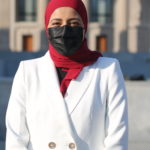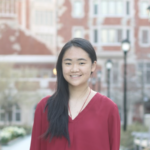
Courtesy of Jordi Bertrán Ramírez
This interview is a part of a five-part series on the Yale College Council candidates running for schoolwide office for the next academic year. The interview, with vice presidential candidate Jordi Bertrán Ramírez, was conducted by phone. Bertrán Ramírez is currently a YCC senator and sustainability co-chair, and is running for vice president alongside presidential candidate Joaquín Lara Midkiff ’23. His responses have been lightly edited for clarity. You can find Lara Midkiff and Bertrán Ramírez‘s platform at www.expectmoreycc.com/vision.
Why are you running?
I got really heavily involved with the Endowment Justice Coalition very early on, and through that I was exposed to lots of different avenues of community building and community organizing that I really fell in love with. I never saw activism and organizing as something that could bleed into the YCC. The YCC, in my view, had failed to bridge that gap between organizers and policymakers. It wasn’t until Kahlil [Greene] got the YCC to join the Endowment Justice Coalition that I realized that those two things weren’t mutually exclusive — that I could be an advocate for my community, and I could be a community organizer through the YCC. This was a revelation that was exciting, particularly because I had noticed that when the pandemic hit, a lot of the issues that were facing students weren’t being addressed by the YCC. A lot of the work that was trying to get students access to care, to get New Haveners equitable treatment during the pandemic, was happening on the ground, was happening by organizers through Step Up Yale and New Haven Rising.
I came to realize that I needed to run for Senate [last year] because I needed to forge that connection between organizers on campus and representatives of the Yale College Council. The reason I’m now running for vice president is because, frankly, our community needs us. There is a vast amount of students who feel like they aren’t being represented by the YCC, who feel that their needs aren’t being addressed, and it’s frustrating that we’ve come so far and have left so many behind.
I’m running because the YCC needs an advocate, a community-builder and a policymaker, and I’m proud to say that my Yale experience is defined by all three. I’ve been an advocate through my work in community organizing on campus. I have forged community connections through my work as a theatermaker and as a teacher. And as the director of the Queer Affinity Network, my commitment was to expand our programming to ensure that LGBTQ students felt solidarity and felt seen and actualized through the YCC. I’m ready to champion efforts that haven’t been brought to the table in the YCC.
What issue matters most to you?
If I were to say that there was one specific issue that I would hope to address, it’s sexual wellness on campus. I think that so much around what is plaguing our community lies in the horribly high sexual assault, sexual harassment and sexual violence rates on campus. Yale is a leader in sexual misconduct. We are above average in rates of reporting. Students are constantly falling victim to sexual violence. When we talk about unseen pandemics, sexual misconduct is at the top. Not only are you creating a culture of harm, but you’re also perpetuating fear in community members, and when so many members of our community have experienced sexual violence, it becomes a collective issue. It becomes an issue that matters for survivors, but also matters for bystanders. It matters for every member of our community because if it’s one person’s problem, it’s everyone’s problem.
What issues do you think matter most to Yalies?
Mental health is absolutely one of our top priorities. To put it simply, Yale simply doesn’t have the resources to serve the needs of students in this regard. Students are waiting weeks and even months for follow-up appointments, on-call waiting rooms are constantly overflowing and the care that we receive when we do manage to open the door does not meet the expectations of the student body.
We want to work to eliminate the application for reinstatement for medical, financial and personal withdrawals from Yale College. Additionally, the ability to obtain dean’s excuses through mental health professionals would allow students a greater level of privacy. Apart from the more fundamental changes to Yale’s mental health infrastructure, it’s absolutely crucial that we begin to interrogate the unhealthy pressures students face on a daily basis.
Making sure that we have robust sexual wellness policies is also really important. In my experience, our avenues for sexual assault and harassment policies fail to uphold justice and fail to uphold a survivor-centered approach. We are advocating for a hard line on rape on campus. There is absolutely no reason as to why perpetrators of this most vile act should be permitted to cohabitate with community members.
We talk about mental health, we talk about sexual wellness, but health in general is tied to much more outside of that. To look more specifically, we’re advocating for greater involvement of the YCC into the community. A healthy YCC is one that’s representative, one that’s transparent, one that’s held accountable. I’m very excited for reforms of the Senate. As the vice president, the Senate is under my purview and I’m thrilled to instate bi-semester town halls, at the beginning of the semester and the end of the semester.
We hope to instate [diversity, equity and inclusion] training for all members of the executive board, so that all students who are working with senators directly are aware of institutional barriers, are aware of their implicit biases and can work to create as equitable of a space as possible.
Why are you qualified?
I’m running because, in my two years at Yale, I’ve found the cracks in our university’s foundation and I am equipped with the tools to seal them. I got to Yale and was involved with the Endowment Justice Coalition and other organizing groups. In the Yale College Council, I’ve served as a senator for Trumbull, as a co-chair of sustainability policy on the executive board and as the director of the Queer Affinity Network. So I’ve served in appointed positions, in elected positions and in non-hierarchical positions on campus, and I am very grateful for the opportunity to work among so many diverse students and New Haveners in the community.
I have firsthand experience in working with communities. My work at Yale is not solely defined by the YCC, and it’s not solely defined by policymaking. I have an extensive background in policymaking and in advocating for change, but there’s another side that is not discussed, and that is the importance of building community. Building community is the fundamental work of the vice president, and one that candidates often leave behind because, frankly, it’s not glamorous, it’s not flashy. Building trust in senators to take on campus issues and forging meaningful connections across identities and intersectionalities — these things are essential to the role of vice president. My background in organizing and advocacy, in addition to policy, clearly demonstrates that I’m the person for the job.
Joaquín [Lara Midkiff, candidate for YCC president] and I are promising an ambitious vision for the Yale community and one that can only be accomplished if candidates have a strong background in negotiating and lobbying administrators.
What do you want to get done in your term if you’re elected?
We have over a hundred policy points, but I’ll try and pinpoint a few specific ones that I am very excited about. One is partnering with Students Unite Now in advocating for the elimination of the student income contribution, and simultaneously pushing to raise the income threshold for a zero parent contribution from 75 to 80 thousand dollars. Increasing that threshold would allow for over 60 percent of families in the United States to much more easily afford a Yale education.
First-generation, low-income students at Yale should have mentoring opportunities. Obviously, navigating life as an FGLI student is a challenge. Facing financial barriers is incredibly difficult as a college student, and we hope to challenge the administration to uphold policy changes. At the same time, as the YCC, what can we unilaterally do? And that’s putting together a financial literacy guide and hosting FGLI workshops at the start of every term. Additionally, that’s fighting for summer session courses to be at parity with the financial aid offerings for the regular academic year. Expanding the opportunities for students to engage with their education is crucial. In addition to that, eliminating fees that are unnecessary. Our classes often range from $50 to $100 of materials fees every semester. This is a payment that can heavily burden students, and one that I’ve personally faced.
FGLI issues are imperative for us to get started on before the upcoming school year. Tackling FGLI issues needs to happen before we set foot on campus, because we need to ensure that students can get to campus knowing that they’ll be able to navigate Yale life without worrying about their finances.











